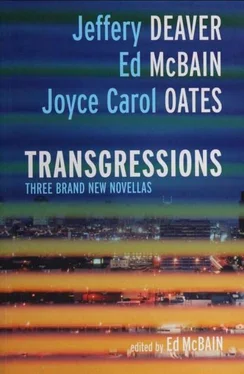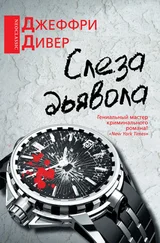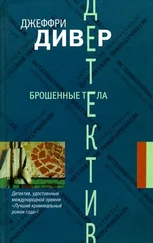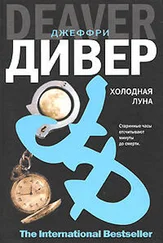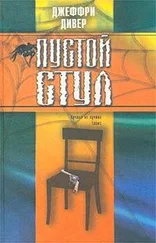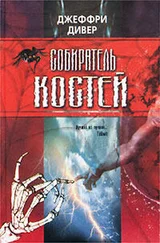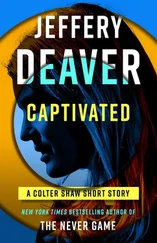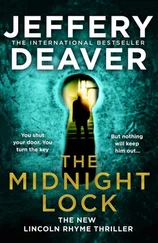Do you love your mom? Jude asked the Corn Maiden.
The Corn Maiden nodded yes. Sort of embarrassed.
Your mom is real pretty. She’s a nurse, I guess?
The Corn Maiden nodded yes. You could see she was proud of her mom but shy to speak of her.
Where is your dad? Jude asked.
The Corn Maiden frowned. She did not know.
Is your dad living?
Did not know.
When did you see your dad last?
Was not sure. She’d been so little...
Did he live around here, or where?
California, the Corn Maiden said. Berkeley.
My mom is in California, Jude said. Los Angeles.
The Corn Maiden smiled, uncertainly.
Maybe your dad is with my dad now, Jude said.
The Corn Maiden looked at Jude in wonderment.
In Hell, Jude said.
Jude laughed. That way she had, her teeth glistening.
Denise and Anita laughed. The Corn Maiden smiled not knowing whether to laugh. Slower and slower the spoon was being lifted to her mouth, her eyelids were drooping.
We would carry the Corn Maiden from Jude’s room. Along a corridor and through a door into what Jude called the guest wing, where the air was colder, and stale. And down a stairway in the guest wing and into a cellar to the storage room.
The Corn Maiden did not weigh much. Three of us, we weighed so much more.
On the outside of the storage room door, a padlock.
Anita and Denise had to leave by 6 P.M., to return to their houses for supper. So boring!
Jude would remain with the Corn Maiden for much of the night. To watch over. A vigil. She was excited by the candle flames, the incense-smell. The pupils of her eyes were dilated, she was highhigh on Ecstasy. She would not bind the Corn Maiden’s wrists and ankles, she said, until it was necessary.
Jude had a Polaroid camera, she would take pictures of the Corn Maiden sleeping on her bier.
As the Corn Maiden was being missed the next morning we would all be at school as usual. For nobody had seen us, and nobody would think of us.
Some pre-vert they’ll think of, Jude said. We can help them with that.
Remember, the Corn Maiden has come as our guest, Jude said. It is not kidnapping.
The Corn Maiden came to Jude on the Thursday before Palm Sunday, in April of the year.
Breaking News
Dial 911 your life is no longer your own.
Dial 911 you become a beggar.
Dial 911 you are stripped naked.
She met them at the curb. Distraught mother awaiting police officers in the rain outside Briarcliff Apts., 15th St., South Skatskill, 8:20 P.M. Approaching officers as they emerged from the patrol car pleading, anxious, trying to remain calm but her voice rising, Help me please help my daughter is missing! I came home from work, my daughter isn’t here, Marissa is eleven years old, I have no idea where she is, nothing like this has ever happened, please help me find her, I’m afraid that someone has taken my daughter! — Caucasian female, early thirties, blond, bare-headed, strong smell of beer on her breath.
They would question her. They would repeat their questions, and she would repeat her answers. She was calm. She tried to be calm. She began to cry. She began to be angry. She knew her words were being recorded, each word she uttered was a matter of public record. She would face TV cameras, interviewers with microphones out-thrust like sceptors. She would see herself performing clumsily and stumbling over her lines in the genre missing child I pleading mother. She would see how skillfully the TV screen leapt from her anxious drawn face and bloodshot eyes to the smiling innocent wide-eyed Marissa, sweet-faced Marissa with gleaming blond hair, eleven years old, sixth grader, the camera lingered upon each of three photos of Marissa provided by her mother; then, as the distraught mother continued to speak, you saw the bland sandstone facade of the “private” — “exclusive” — Skatskill Day School and next you were looking at the sinister nighttime traffic of 15th Street, South Skatskill along which, as a neutral-sounding woman’s voice explained, eleven-year-old Marissa Branty normally walked home to let herself into an empty apartment and begin to prepare supper for her mother (who worked at a Nyack medical clinic, would not be home until 8 P.M.) and herself; then you were looking at the exterior, rear of Briarcliff Apts. squat and ugly as an army barracks in the rain, where a few hardy residents stood curious staring at police officers and camera crews; then you saw again the mother of the missing girl Leah Bantry, thirty-four, obviously a negligent mother, a sick-with-guilt mother publicly pleading If anyone has seen my daughter, if anyone has any idea what might have happened to Marissa...
Next news item, tractor-trailer overturned on the New Jersey Turnpike, pile-up involving eleven vehicles, two drivers killed, eight taken by ambulance to Newark hospital.
So ashamed! But I only want Marissa back.
It was BREAKING NEWS! which means exciting news and by 10 P.M. of that Thursday in April each of four local TV stations was carrying the missing Marissa story, and would carry it at regular intervals for as long as there were developments and as long as local interest remained high. But really it was not “new” news, everyone had seen it before. All that could be “new” were the specific players and certain details to be revealed in time, with the teasing punctuality of a suspense film.
It was a good thing, the distraught mother gathered, that cases of missing/abducted children were relatively rare in the affluent Hudson Valley suburbs north of New York City, as crimes of violence in these communities were rare. This meant dramatically focused police attention, cooperation with neighboring police departments in Tarrytown, Sleepy Hollow, Irvington. This meant dramatically focused media coverage, replication of Marissa Banty’s likeness, public concern and participation in the search. Outpouring of sympathy, it would be called. Community involvement. You would not find such a response in a high-crime area, Leah was told.
“Something to be grateful for. Thank you!”
She wasn’t speaking ironically. Tears shone in her bloodshot eyes, she wanted only to be believed.
It was in the distraught mother’s favor, too, that, if her daughter had been abducted and hadn’t simply run away of her own volition, hers would be the first such case in Skatskill’s history.
That was remarkable. That was truly a novelty.
“But she didn’t run away. Marissa did not run away. I’ve tried to explain...”
Another novelty in the affluent Hudson Valley suburbs was the mysterious/suspicious circumstance of the “considerable” time lapse between the child’s probable disappearance after school and the recorded time the mother reported her missing at 8:14 P.M. The most vigilant of the local TV stations was alert to the dramatic possibilities here. Skats kill police will neither confirm nor deny that the department is said to be considering charging Branty, who has no previous police record, with child endangerment.
And how it would be leaked to this same TV station, the distraught mother had evidenced signs of “inebriation” when police arrived at her home, no one at the station was in a position to say.
So ashamed! I want to die.
If I could exchange my life for Marissa’s
Hours, days. Though each hour was singular, raw as a stone forced down the throat. And what were days but unchartable and unfathomable durations of time too painful to be borne except as singular hours or even minutes. She was aware of a great wheel turning, and of herself caught in this wheel, helpless, in a state of suspended panic and yet eager to cooperate with the very turning of the wheel, if it might bring Marissa back to her. For she was coming to feel, possibly yes there was a God, a God of mercy and not just justice, and she might barter her life for Marissa’s.
Читать дальше
